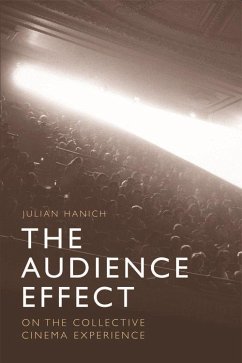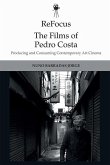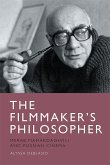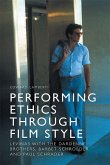Note: please increase the contrast in the image so that it's more like the original design option? 'This book moves its attention from the images on the screen to the audience gathered in the film theatre and eventually tells "their" stories. Hanich makes a spectacular shift, and he unfolds a reality that film studies has partly forgotten, as well as cinema's nature as a "democratic" art. A rigorous and fascinating book that will revamp audience studies.' Francesco Casetti, Yale University 'The Audience Effect is an immensely important contribution to the phenomenology of cinema. Focused on the much-neglected collectivity of the theatrical film experience, it also touches on other modes of collective viewing, and its rigorous descriptions of the structures, effects and affects entailed in collective viewing are extraordinarily enlivened by many examples and extremely accessible prose.' Vivian Sobchack, UCLA Is the experience of watching a film with others in a cinema crucially different from watching a film alone? Does laughing together amplify our enjoyment, and when watching a film in communal rapt attention, does this intensify the whole experience? And what about being angry about annoying spectators? Attending a film in a cinema implies being influenced by other people, an 'audience effect' that is particularly noticeable once affective responses like laughter, weeping, embarrassment or anger play a role. In this book, Julian Hanich explores the subjectively lived experience of watching films together, to discover a fuller understanding of cinema as an art form and a social institution. Combining recent scholarly interest in viewers' emotions and affects with insights from the blossoming debate about collective emotions in philosophy and social psychology, this study makes viewers more aware of their own experience in the cinema, and simultaneously opens up a new line of research for film studies. Julian Hanich is Associate Professor of Film Studies at the University of Groningen. Cover image: by Weegee (Arthur Fellig) (c) International Center of Photography/Getty Images Cover design: [EUP logo] edinburghuniversitypress.com ISBN 978-1-4744-1495-1 Barcode








